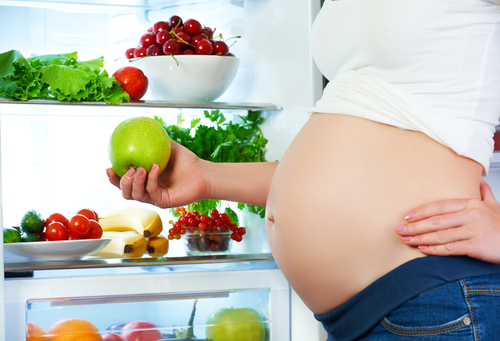Are You Prepared?
It struck me on how little I knew about nutrition or how my body’s previous state could affect my pregnancy. I wish I had known more before coming pregnant and had prepared my body to take one of the hardest things it would endure. Most women stock up on folic acid, but did you know about all the extra protein, iron, calcium, zinc that is needed? The pregnant body needs more of everything from vitamins & minerals to rest & balanced activity.
But first a little note that a women’s pre-pregnancy condition. This is a very important factor as the depletion can occur during pregnancy and nursing. Not being prepared for this important part of a women’s life can cause some trouble during pregnancy or years of recovery after. If you think you want to start a family, start taking care of yourself first. This can apply to men as well. Get on a good diet, off health damaging habits such as smoking, drinking coffee, and other drug use.
So when women are pregnant they need to consume more calories. It takes a lot work and calories to grow a little human. It can take 75,000 calories to make a baby = approx. 350-450 extra calories a day. A women should eat around 2400-2800 calories a day while pregnant, with even more calories added in the third trimester.
Protein:
- 50% more protein is required. 70-85 grams upwards toward 100 grams
- Supports the tissue growth of both the fetus and new tissue made by the mother
- Sources: fish, poultry, eggs, dairy foods, nuts, seeds, grains and legumes
Calcium:
- If the woman is not containing sufficient calcium it can be pulled from her bones to nourish the fetus; this can also pull toxins from the mother and pass them onto the fetus
- 1,000 – 1,300 mg needed daily
- Aids in the babies bones and teeth development, muscle and heart function, blood clotting, and nerve transmission
- Sources: fish, milk products, nuts and seeds, leafy greens, sea vegetables, whole grains
Iron:
- Key in building blood cells in the mother and the fetus, also aids in disease resistance and elimination
- A women’s blood volume increases by 50% during pregnancy
- Approx. 27mg of iron is needed during pregnancy. If these levels are not met, anemia usually occurs and is followed with fatigue and poor endurance. (This is where my journey began and how I got started into the world of health and fitness)
- To obtain sufficient levels from diet alone is hard, so supplementation is recommended to be spread out throughout the course of a day. Best form of supplement is Ferrous gluconate and fumarate; good absorption and fewer symptoms of intestinal tract upset. Take Iron supplement with 250 mg Vitamin C for better absorption and between meals if possible.
- Sources: beef liver, red meats, eggs, chicken, salmon, seaweed, brewer’s yeast, molasses, millet, prunes, raisins, mushrooms, chard, spinach and most nuts and seeds
Zinc:
- Aids in the normal development of the fetus’s immune system
- Sources: beef liver, red meats, eggs, chicken, salmon, seaweed, brewer’s yeast, molasses, millet, prunes, raisins, mushrooms, chard, spinach and most nuts and seeds. With additional amounts in shellfish, especially oysters
Folic Acid
- Helps form red blood cells, aids growth and reproduction of other cells, support the development of the nervous system in the fetus
- Helps stimulate the mother appetite
- Deficiency has congenital neurological defects in babies
- 600 mcg up to 1000 mcg is required daily
- Sources: leafy greens, whole grains, yeast, fish, dairy foods and organ meats
Other nutrients are also needed in increased levels such as Vitamin A, C, E and B6 as well as minerals such as iodine, magnesium and sodium. Do not take mega doses of Vitamin C though, as this can take on a scurvy affect in a newborn when they are no longer taking in that mega dose every day from the mother.
Be prepared to endure pregnancy. By nature a fetus has been provided with the power to pull extra supplies from the mother when they are not being provided. The fetus can pull minerals, vitamins, protein from the mother’s tissues, bones, organs and other storage areas. Besides needing all these nutrients to grow the fetus it is also needed to build the placenta, increase the uterus size and breast tissues and to create amniotic fluid.
Women need to eat a wholesome diet, high in fiber with whole grains, fruits & vegetables, with more dairy & animal meats and avoid junk foods and sugary snacks. Exercise is also important to stay loose and limber, promotes good circulation, and prevent constipation and varicose veins.
Also remember to take some “me” time for mediation, relaxation, stretching and preparing for the future to come. The best way to keep your baby healthy is to keep yourself healthy.


